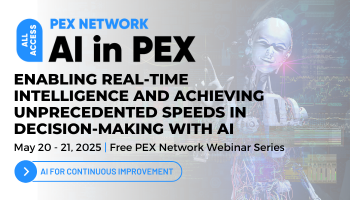Digital friction threatens to derail AI-driven business transformation
AI is set to drive the most intensive wave of digital transformation yet but digital friction and a lack of digital dexterity could see investments wasted
Add bookmarkListen to this content
Audio conversion provided by OpenAI

A lack of employee readiness to adopt and use artificial intelligence (AI) threatens to derail AI-driven business transformation. That’s according to a new report from Nexthink exploring the challenges IT leaders face in preparing for the next phase of digital transformation.
Nexthink interviewed 1,100 senior IT decision-makers across the UK, USA, France and Germany, with 95 percent of respondents stating that the wave of AI-powered digital transformation will be the most impactful and intensive yet.
Most leaders (92 percent) believe this new era of digital transformation will increase digital friction and that less than half (47 percent) of employees have the required digital dexterity to adapt to technological changes. A further 88 percent expect workers to be daunted by new technologies such as generative AI.
Don't miss any news, updates or insider tips from PEX Network by getting them delivered to your inbox. Sign up to our newsletter and join our community of experts.
What are digital friction and digital dexterity?
The report defines digital friction as the unnecessary effort and time an employee spends trying to use data or technology at work. Conversely, a digitally dexterous workforce is one that experiences little to no digital friction because they’re agile, adept, supported and open to new tools.
Almost all respondents (95 percent) agree that digital dexterity will be essential to organizational success in the coming three years, with 96 percent stating that enhanced digital adoption support will be critical for helping employees adapt to AI. The same number (96 percent) admit their organization needs to improve at helping employees adapt to AI.
Read 7 free AI training courses for business leaders
What’s blocking digital dexterity?
Many barriers can get in the way of employee digital dexterity, with respondents pointing to three in particular:
- IT’s lack of proven record to get buy-in from other parts of the business (68 percent).
- An inability to demonstrate value of new technology (62 percent).
- A lack of training/resources (55 percent).
“The AI era is going to be a radical break from previous waves of digital transformation,” said Vedant Sampath, CTO at Nexthink. “Unlocking the potential of AI is going to be the competitive differentiator of the next decade, but this research shows that businesses face a huge challenge in upskilling their employees to meet the moment. Otherwise, executives risk finding themselves having spent millions of dollars on software and IT services that are just gathering dust.”
Managing the transition to the AI era is going to require businesses to be smart around digital adoption, added Sampath. “Having application owners act as knowledge gatekeepers is neither efficient nor scalable. Instead, businesses need to provide employees with timely context-relevant assistance for the task they are performing, in addition to application monitoring and real-time resolution when issues occur.”
World Economic Forum warns of critical skills and talent gaps
Separate research from the World Economic Forum (WEF) echoes similar sentiments as Nexthink’s report – indicating that skills and talent gaps are the critical obstacles to business transformation. The Future of Jobs Report compiles the findings of an extensive survey of more than 1,000 global employers, with skills gaps cited as the biggest barrier to transformation over the 2025-2030 period.
Analytical thinking is the most sought-after core skill among employers, with 70 percent of survey respondents considering it as essential in 2025. This is followed by resilience, flexibility and agility, along with leadership and social influence. AI and big data topped the list of fastest-growing skills, followed closely by networks and cyber security as well as technology literacy.
Accordingly, 85 percent of employers surveyed plan to prioritize upskilling their workforce, with 70 percent of employers expecting to hire staff with new skills, 40 percent planning to reduce staff as their skills become less relevant and 50 percent planning to transition staff from declining to growing roles.
All Access: AI in PEX is 2025

All Access: AI in PEX 2025 is designed to address these challenges and empower organizations to successfully integrate AI into their process improvement initiatives. The content series will bring together industry experts, thought leaders, and practitioners to share insights, best practices, and real-world case studies.
Register Now













